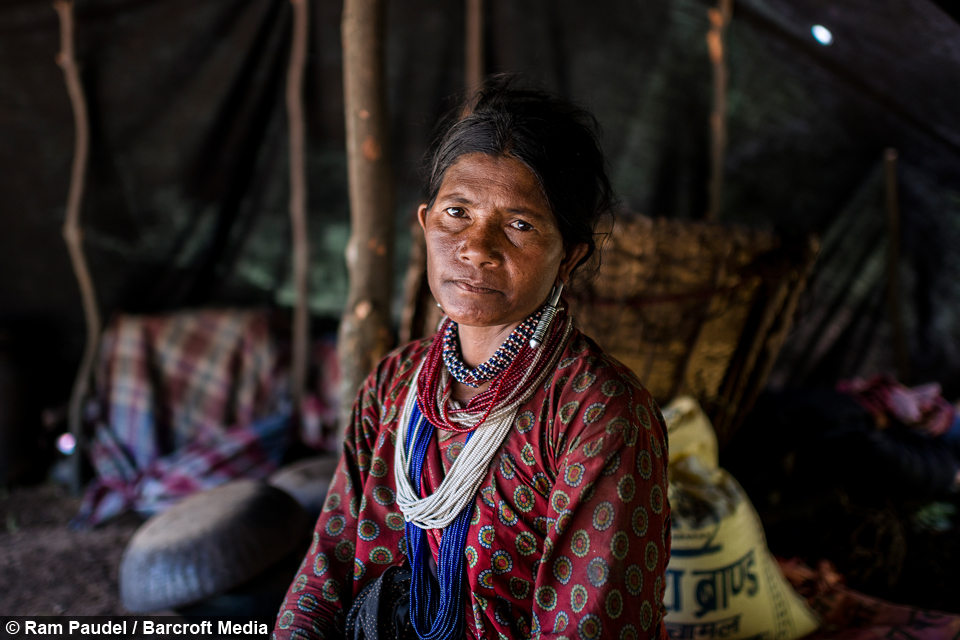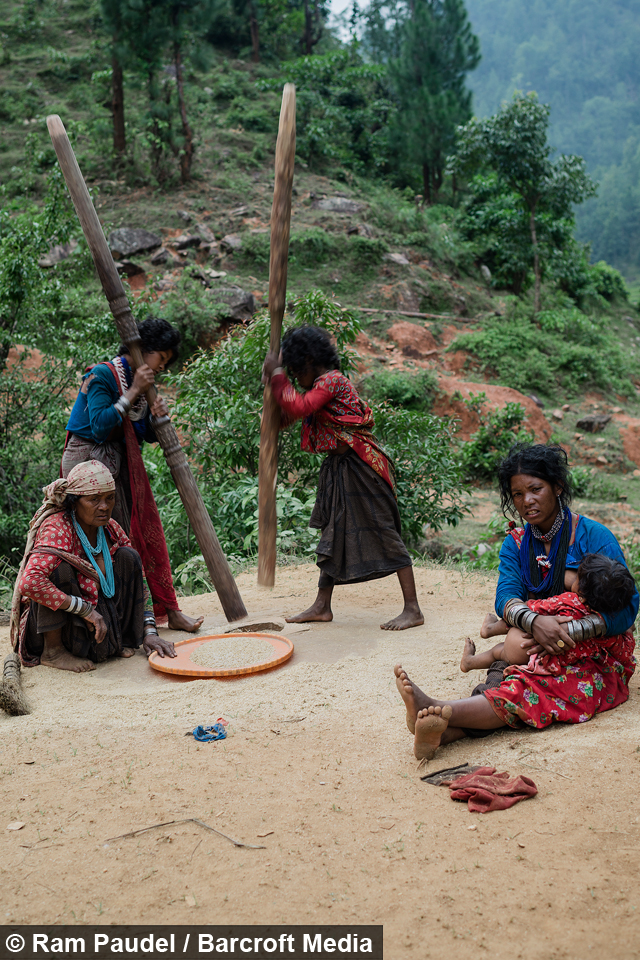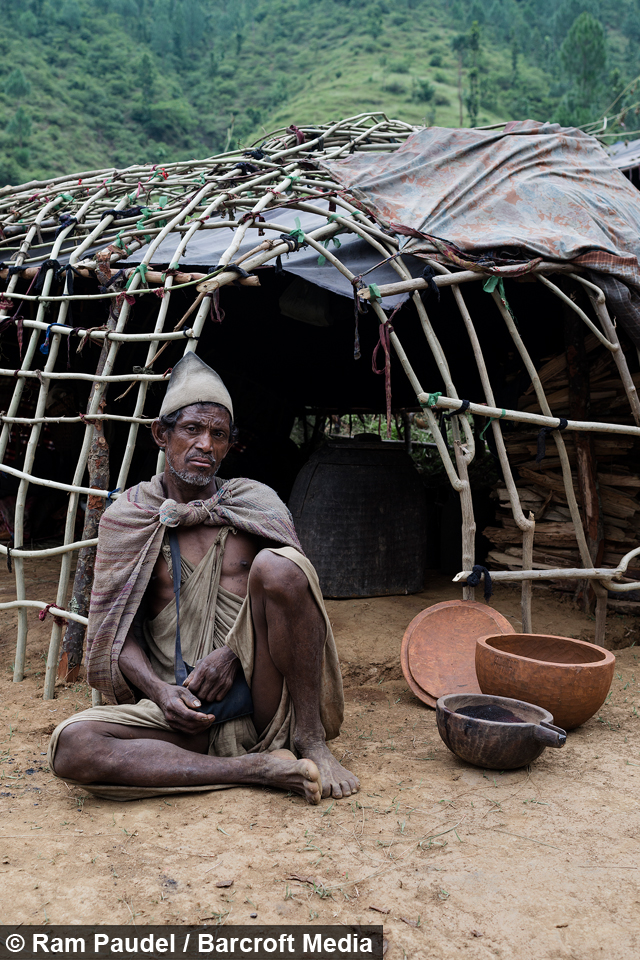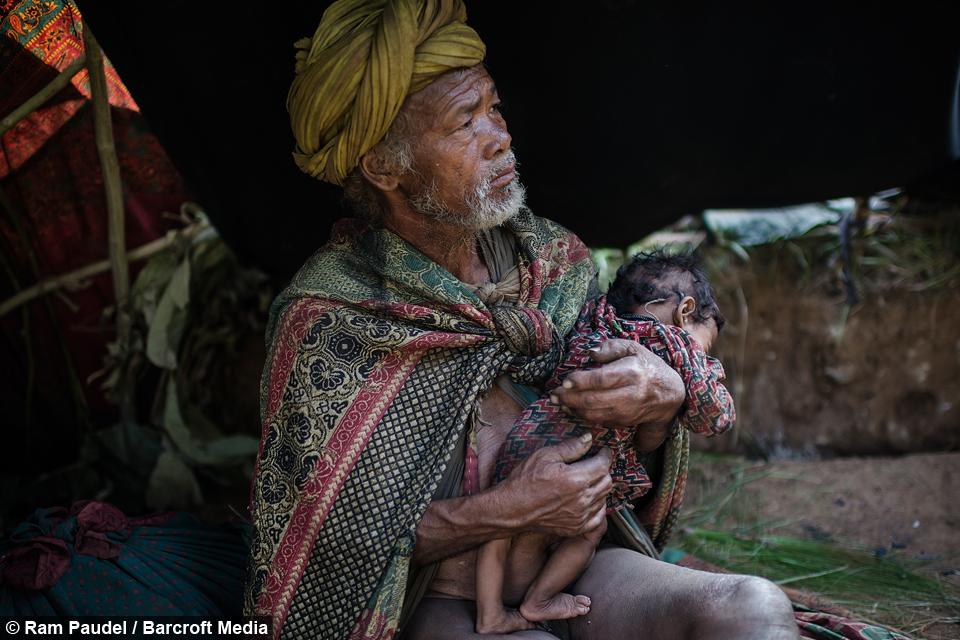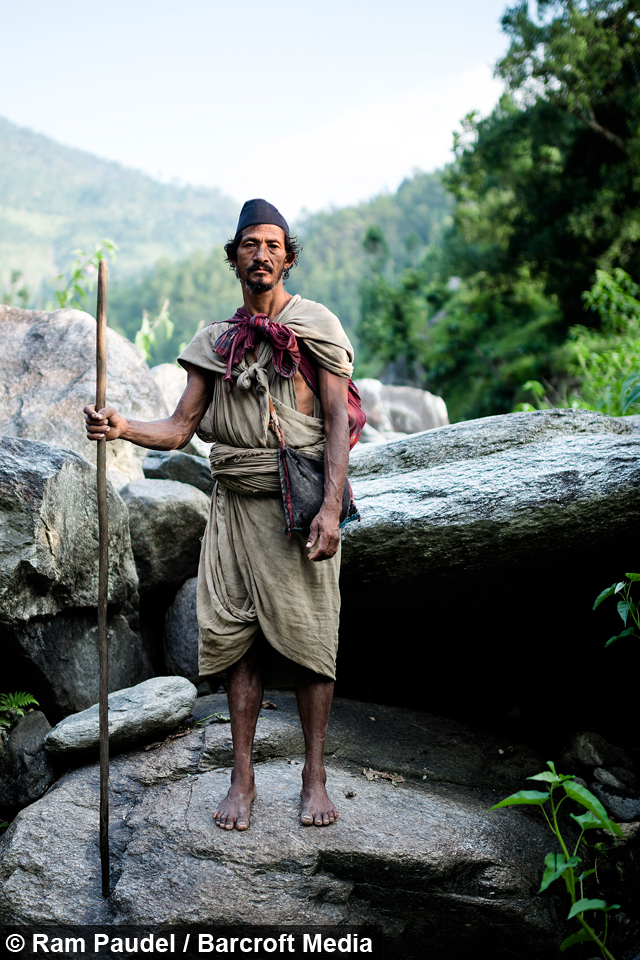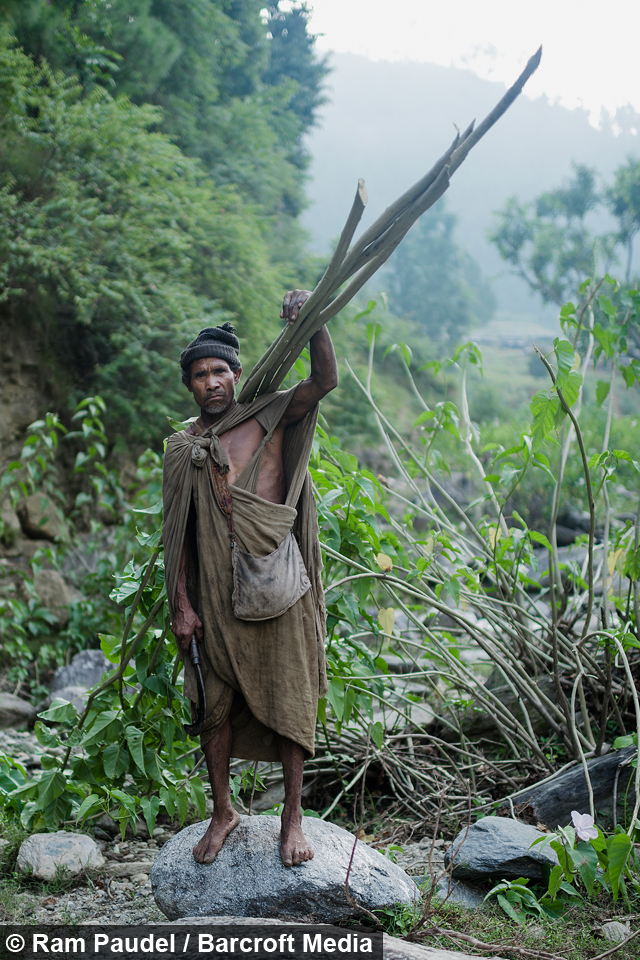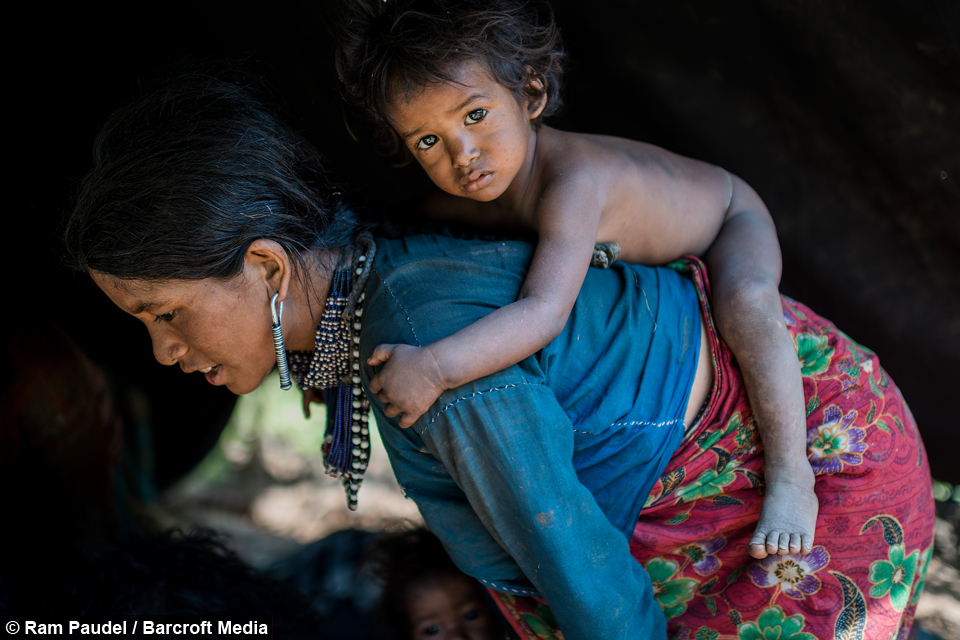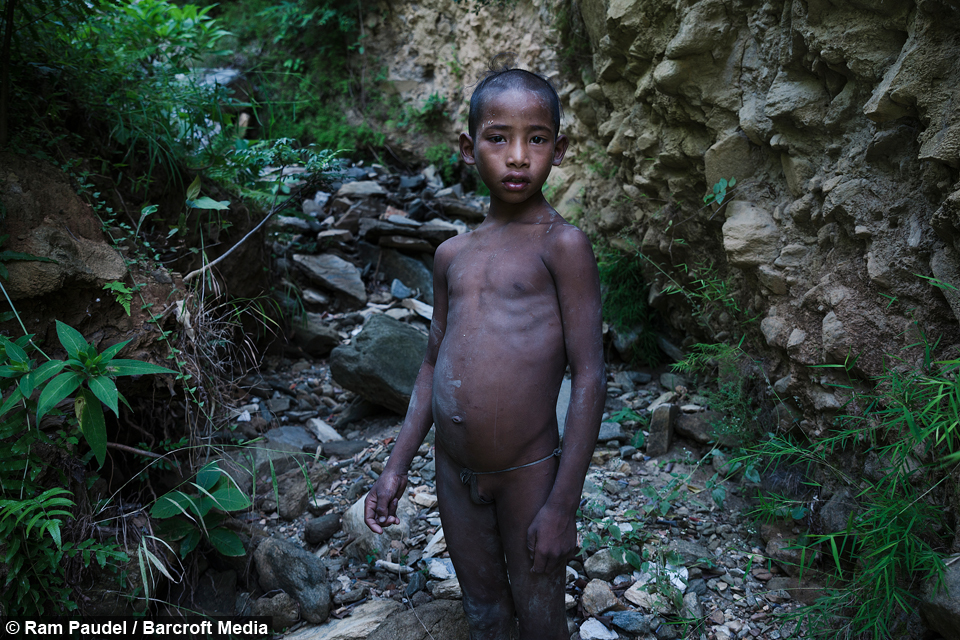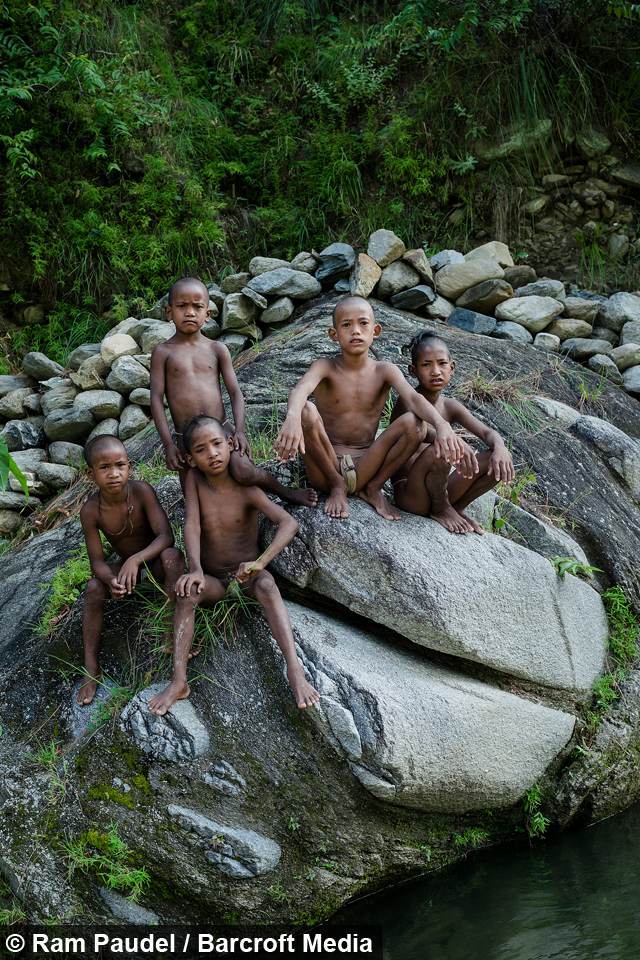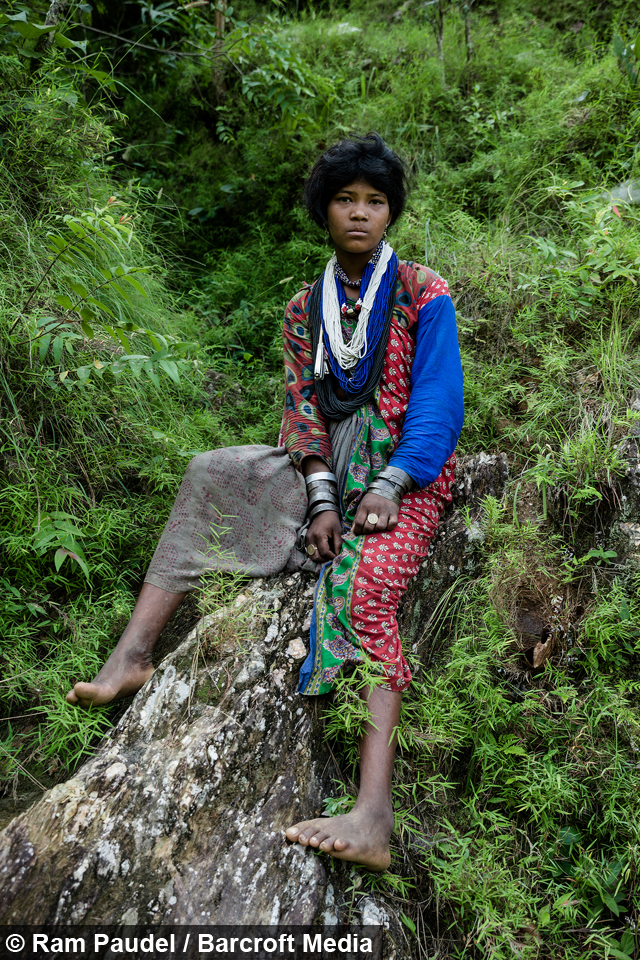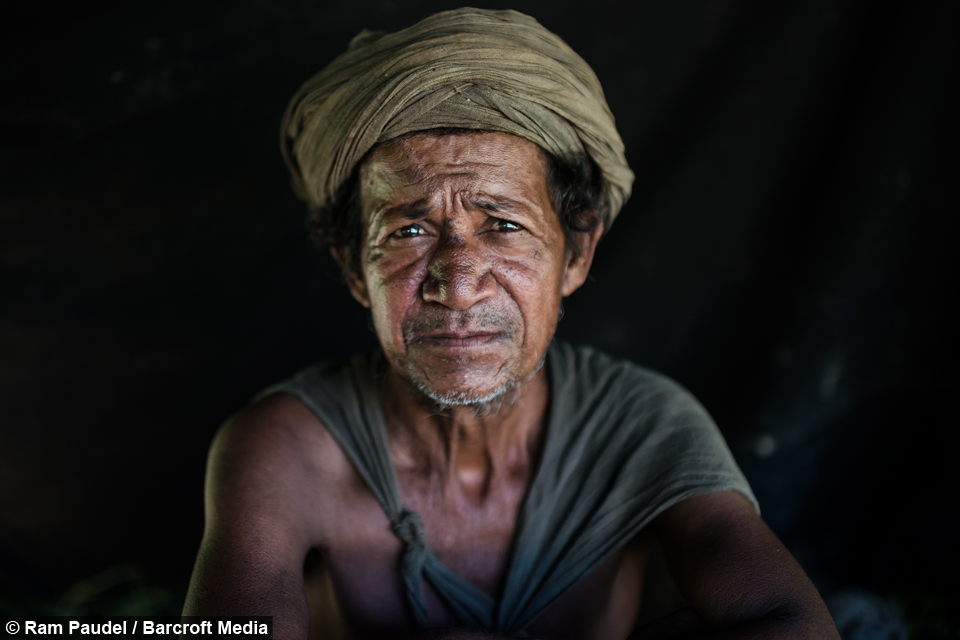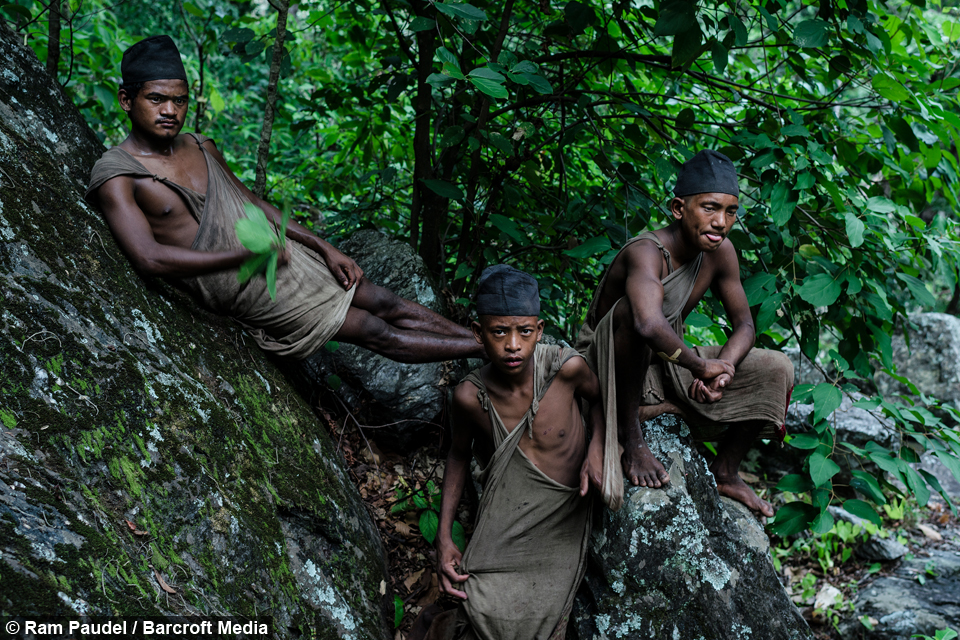'Kings of the Forest': Life Inside Nepal's Nomadic Raute Tribe
By Nathalie Bonney
Scroll down for the full story
Gaining access to the remote tribe is difficult, with the Raute people typically refusing to let outsiders see them in the forest.
But Nepalese-born photographer Ram Paudel was granted special dispensation to live alongside and photograph the nomadic tribe for three days in September 2015.
His stunning pictures give a fascinating insight into the secretive tribe’s way of life.
Travelling by bus on muddy tracks, it took Ram, 31, from Bielefeld in Germany, three days to reach the tribe, who are situated in the Dailekh and Achham Districts.
He said: “They move every two months to a new place and mostly live very distantly from other villages in hidden forest or on riverbanks.
"They don’t own land and don’t believe in the economics of physical labour in exchange for wages.”
Consisting of just 150 individuals, the Raute people survive by hunting monkeys and making simple woodcrafts that they trade with nearby villages in exchange for grains and vegetables.
Describing themselves as ‘ban k raja’ - meaning ‘kings of the forest’ - the tribespeople mainly speak a non-written Tibeto-Burman language but many of the younger tribe members were able to communicate with Ram in Nepali, the national language.
Ram said: “Some individuals have basic knowledge about our modern society. Some of the leaders are also well-informed about national politics.
"I asked one ‘how do you know all these things, you don’t have radios, clocks or even a calendar?' He said our Mukhiya or leader talks with the villagers and passes on the information.”
The tribe’s existence is increasingly coming under threat - cheap plastic goods threaten the Raute’s only source of trade with their woodcrafts, while changes to the climate mean they can no longer rely on rain at the right time to help produce food and crops.
The Barbary and Langur monkeys that they hunt are also dwindling in number.
“Due to the lack of vitamins and proteins in the Raute diet, the death rate among babies and toddlers is very high,” Ram added.
"I have seen children with physical disabilities and many have big bellies because they suffer from malnutrition.”
The Nepalese government and NGOs have offered Raute individuals plots of land so they can settle in one place and farm the land more effectively, as well as free school places for their children, but the Raute people have rejected these offers.
Ram said: “They are proud to be nomads, enjoying their freedom and way of life and their deep connection with nature.”
At the end of Ram’s stay the Raute performed traditional dances and music to celebrate his visit.
"They thanked me and I got the feeling that they accepted me as one of them, I guess because of my origin – it makes me want to return very soon,” he added.

